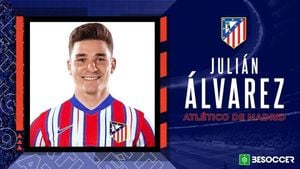Germany faced pivotal federal elections on February 23, 2025, which many deemed necessary following the collapse of the ruling coalition led by Chancellor Olaf Scholz. The elections were originally scheduled for September but were moved up due to political instability, highlighting the urgency for citizens to make their voices heard during this tumultuous time.
With approximately 59 million citizens eligible to vote, the stakes were high as major party candidates geared up for what could be the most consequential elections Germany has seen in years. Scholz, from the Social Democratic Party (SPD), championed policies supporting higher minimum wages and stability for pensions, urging voters through social media, "Go vote. For higher wages, tax relief for the vast majority..." His call to action emphasized the need for social cohesion and economic reform within Germany.
His main opponent, Friedrich Merz of the Christian Democratic Union (CDU), expressed confidence as he cast his vote, stating, "Every vote counts... this is a chance for needed political change." Merz, favored to become the next Chancellor, has campaigned on revitalizing Germany’s economy and addressing rising tensions related to immigration. Polling data indicated the CDU leading with 30%, followed closely by the far-right Alternative for Germany (AfD), which could see its share nearly double to 20%.
The backdrop for these elections was complex, stemming from heightened discourse on immigration, economic recovery post-COVID, and energy crises stemming from the Ukraine conflict. President Frank-Walter Steinmeier called upon the electorate to recognize the significance of their participation, declaring, "Elections are the pillar of our democracy... every vote could be decisive." His message reverberated throughout polling stations across the country, where citizens queued to make their choices.
The unique electoral system allows voters two votes—one for their district candidate (Erststimme) and another for their party of choice (Zweitstimme)—designed to create proportional representation within the Bundestag. While the SPD was once at the helm of government, projections indicated they were likely to fall to third place with around 15% of the vote, painting a stark picture of their recent political decline.
Candidates from various parties expressed optimism and apprehension leading up to the election. Robert Habeck from the Greens also found himself amid heated discussions, as the party needed to reclaim its influence amid critiques of its leadership and economic policies. The implication of rising AfD influence raised questions across the political spectrum about potential coalition formations should no party achieve outright majority.
Many observers noted the pre-election tension between traditional parties and the seemingly unstoppable rise of the AfD as they maneuvered toward potentially claiming more legislative power. Political analysts and commentators warned this shift could lead to unpredictable power dynamics and challenge the core values the European Union stands for.
The election day unfolded with optimism and uncertainty, evident as voters engaged passionately around topics from economic stability to immigration concerns. Observers reported only minor incidents as citizens turned out at polling stations from Berlin to Potsdam, symbolizing the reinvigorated democratic process the elections aimed to uphold.
Scholz and Merz mirrored sentiments of relief and readiness as they completed their voting, indicating the importance of their choices for Germany's future direction. Merz stated, "Everything will go well." His remarks seemed to galvanize supporters eager for change after the faltering coalition government. Meanwhile, Scholz positioned himself as still very much engaged and hopeful about his prospects, declaring his confidence about regaining his Potsdam constituency.
With election times winding down, international observers and political analysts closely monitored the results, noting the pressing need for stability within Germany as it braces for economic recovery and navigates the consequences of its foreign and immigration policies. Reactions were expected to encompass both jubilation and concern as the final vote counts unraveled. Political landscapes could shift radically depending on coalition dynamics, potentially culminating the rise of new political configurations within the Bundestag.
Germany’s future remains uncertain, with the outcome of the elections impacting not only national policies but also the broader European political climate. What will emerge from this electoral contest could reshape the debate on democracy, governance, and societal priorities across Europe.



